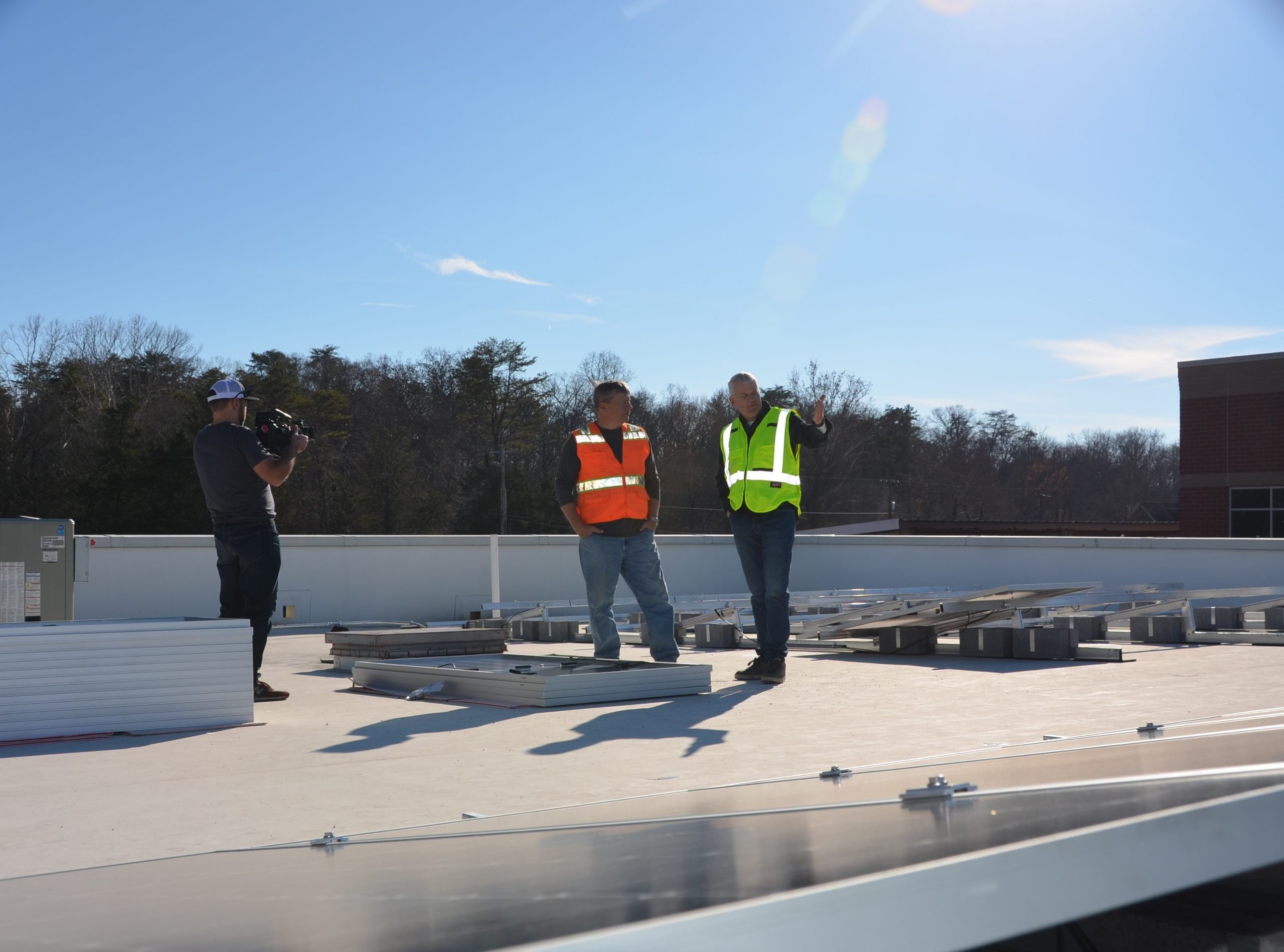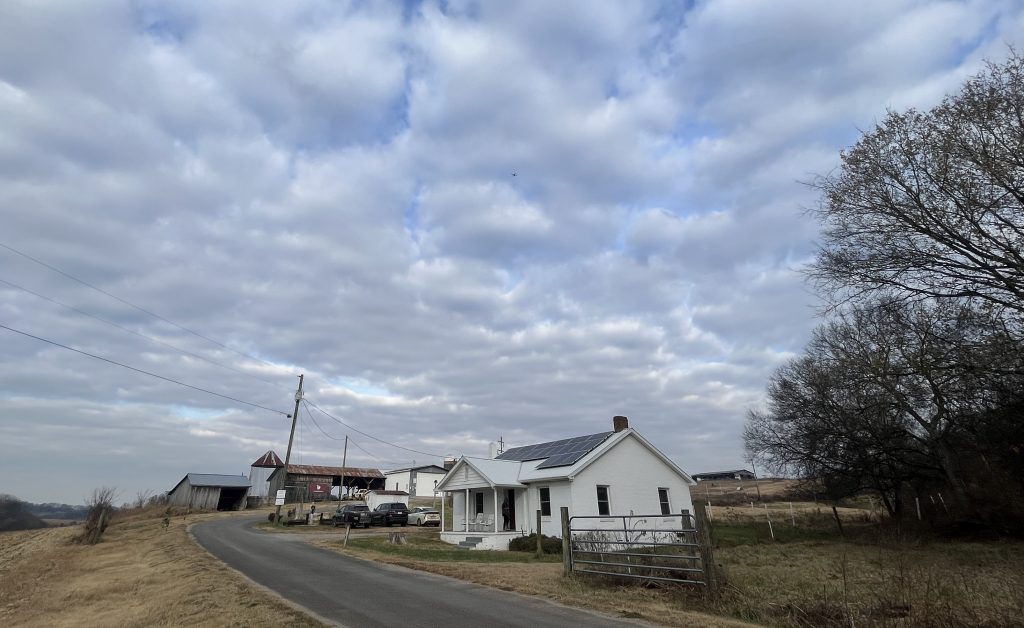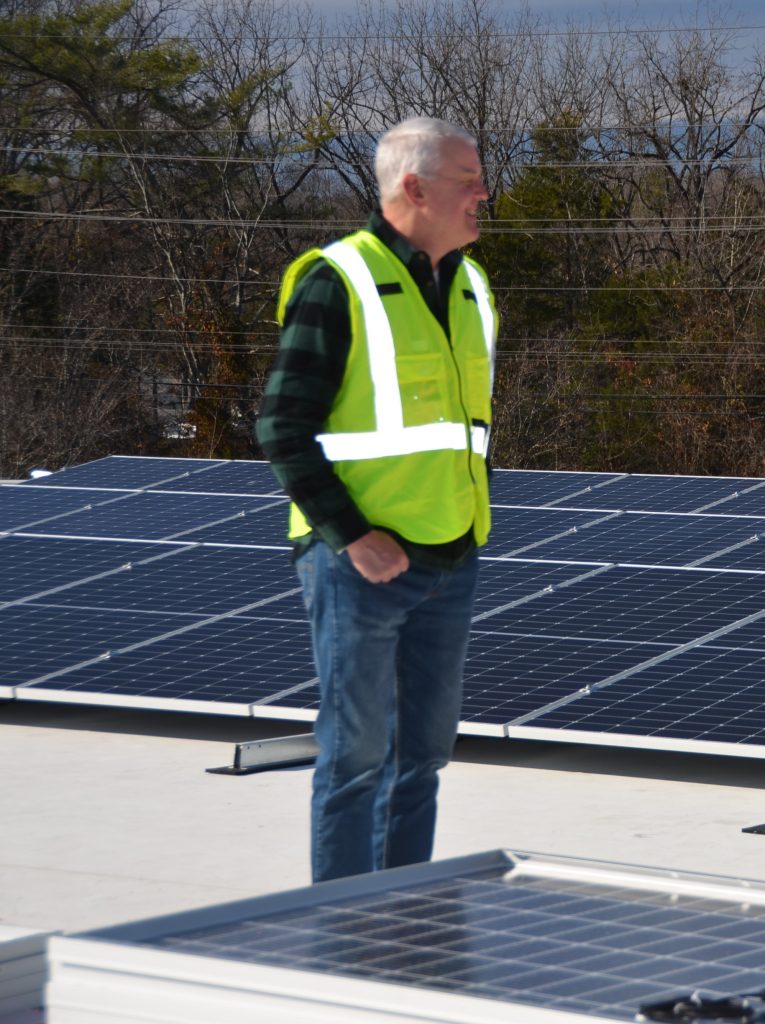
Last Updated on May 2, 2025 by Anne Brock
Solar for Savings
How are small businesses finding savings for their bottom line? Some are harvesting that savings via sunshine: adding the ability to produce their own solar energy. The Rural Energy for America Program offers a generous way to support solar for rural, small businesses. Only a portion of those are farms. Many are not.
One small business using the REAP grant resource from the United States Department of Agriculture is a family farm that is still feeding America.
Subscribe to our YouTube channel and don’t miss a thing!
Family Farm Evolves with Solar

“Just been here over a hundred years,” said Shannon Miller of Lick Skillet Farm in New Market, Tennessee. “My husband’s family.”
The family farm converted years ago from tobacco as a typical East Tennessee cash crop to a large cattle herd. They’ve expanded to a variety of farm foods they market online. That includes grass-finished beef and lamb, pastured heritage pork, chicken, eggs and turkeys.
The family continues producing local food, supporting the local economy and harvesting sunshine right on the farm with solar plus battery storage. They have been adding solar in stages, even looking at an additional array to offset the energy costs of on-farm, small-batch food processing and storage.
Farm families like the Millers are using the Renewable Energy for America Program to add a layer of dependable, renewable energy from the sun. But the REAP grant’s not only for farmers.
Not a Farmer, but Harvesting Savings via Sunshine

”I’m not a farmer,” said Eric Levin. “But, I’m a small business owner.”
Eric Levin’s Market Street Properties is bringing solar energy to Oak Ridge, Tennessee, where he owns an office building that he leases out.
“Projects like these have a direct impact on a business owner’s bottom line,” said Solar Alliance Southeast General Manager Jon Hamilton.
USDA REAP grants are supporting as much as half of an eligible energy project.
Hamilton said, “The REAP grant is the best program for small businesses in our area.”
REAP is getting rural small business owners better access to utility savings and the peace of mind that clean, distributed energy brings. Solar Alliance is proud to be a part of it.
“Saves them money by generating their own power and allows them to leverage grants and federal incentives that are available to them now,” added Hamilton.
Reducing Energy Costs
“Helps us with our energy costs,” said Shannon Miller.
Levin noted, “Reducing this electric bill really helps on the bottom line.”
Going for the Grant
Why is going for the grant worth it?
“Cuts the cost of the system in half,” said Levin. “The return on investment with solar is fantastic!
“I think it’s smart,” said Shannon Miller. “I pay taxes and I like for my taxpayer dollars to go to a good use.”
Energy Grants Through the Years
Lick Skillet Farm is one of multiple rural, small businesses that Solar Alliance has worked with through the years when they add solar as part of the Renewable Energy for America Program.
An early adopter of renewable energy for agriculture and food-related small business in East Tennessee was Wampler’s Farm Sausage. The REAP program benefitted this family-owned company, as well, when they added solar arrays.
Solar Alliance provides grant-application services along with the solar projects that clients enlist us to design and build for them.
REAP Grant Application Deadlines for 2024:
March 31, 2024
June 30, 2024
September 30, 2024
For More Information
See more program details here from the USDA. Agricultural producers can be located in rural or nonrural areas. However, businesses must be located in rural areas with populations of 50,000 or fewer. You can check the USDA’s database of eligible business addresses at this link.
Watch here for information on the next REAP workshop hosted by the University of Tennessee Institute of Agriculture.
Contact Solar Alliance here with details about your location and your goals for savings with solar for your rural, small business.
Need Help With Cash Up Front?
Explore how Pathway Lending assists small businesses and nonprofits with energy projects like solar. It offers lower-end interest rates, often unsecured, to help businesses invest in energy savings for the long run. It can serve as a bridge from the start of a project like solar to the time when a business receives federal grant assistance for a completed project.
How Does the Process Work?
You can check your location here with USDA as it relates to program eligibility.
Contact Solar Alliance here to start the process of designing your solar system. We can work with you through the REAP application timeline.
Once we receive written USDA approval for your grant and have all applicable permits as well as necessary components, we are able to begin construction.
Upon completion and required documentation of your system, the federal government can issue your grant.
Not a Small Business? Could Tax Incentives Still Support Your Solar Project?
Even if you don’t qualify for REAP grants, you and your accountant may still want to explore generous tax incentives for renewable energy investments. Here is a short explanation about putting your tax dollars to work in this way.
Read More about Other Federal Incentives
Federal Solar Tax Credits for Businesses
Federal Solar Tax Credits for Homeowners
IRS: Registering as a Nonprofit for Direct Pay or Elective Pay for a Clean Energy Project
